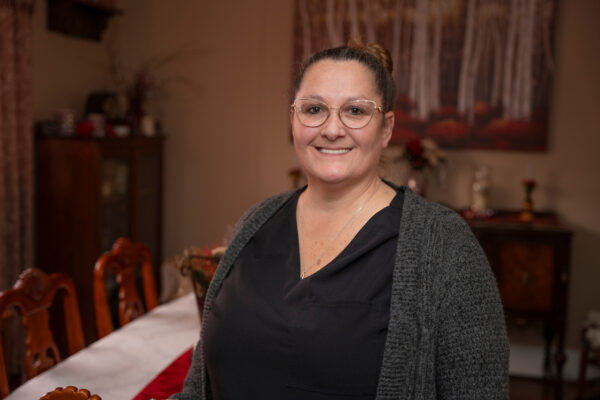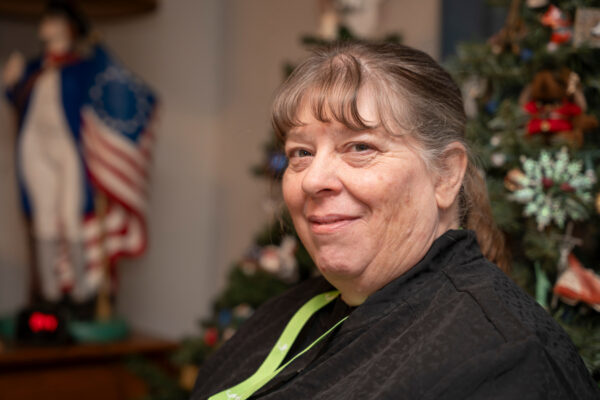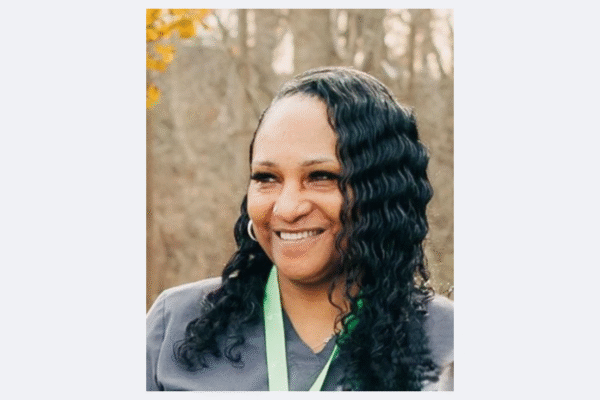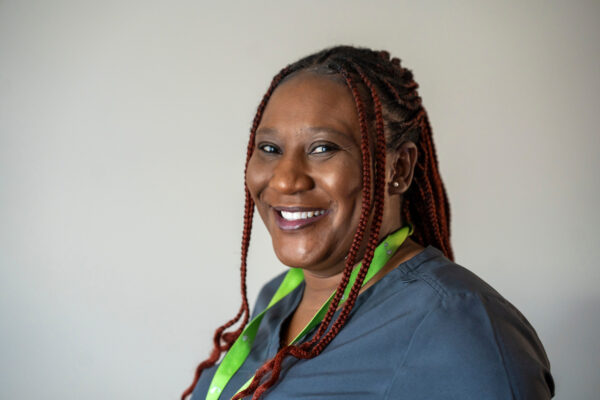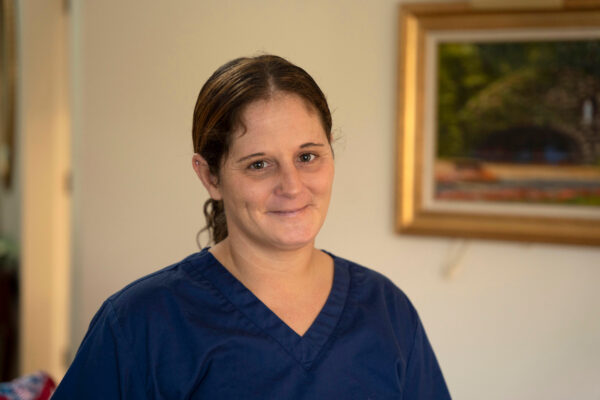It starts subtly. The elderly mother who used to love cooking now barely touches her meals. The aging father who once demanded seconds at every dinner now picks at his food like a bird. For countless families across the country, the loss of appetite in elderly loved ones creates worry, frustration, and genuine fear about their health and well-being.
“My mother went from being the family foodie to someone who views eating as a chore,” shares Rita, whose 84-year-old mother lives with her. “Some days, getting her to eat feels like the biggest victory of my week.”
This scenario plays out in homes everywhere, often catching families unprepared. Poor nutrition in seniors typically begins with this diminished interest in food. What was once a pleasure becomes a burden, with meals being skipped or portions growing smaller.
Unlike younger adults who might experience temporary appetite changes, loss of appetite in elderly individuals can become chronic, leading to insufficient nutrient intake, unwanted weight loss, and a cascade of health problems.

Why Do Elderly People Lose Their Appetite?
Elderly people can lose their appetites for many reasons.
Physical Causes of Loss of Appetite in Elderly Adults
The aging body undergoes numerous changes that directly impact how seniors experience food and hunger:
Taste and Smell Diminish Dramatically
Remember when Grandma could smell a pie baking from three houses away? There’s a reason those days are gone.
By age 70, many seniors have lost more than half their taste buds. Add a dulled sense of smell (which handles about 80% of what we call “taste”), and suddenly food becomes… bland. As one senior described it, “Everything tastes like cardboard covered in different sauces.”
Digestive Systems Slow Down Significantly
Many families notice their elderly relatives feel full after just a few bites. That’s because aging dramatically slows digestion—food sits in the stomach longer, creating feelings of fullness that persist even when nutritional needs haven’t been met.
Dental Issues Create Physical Barriers
Between ill-fitting dentures, missing teeth, dry mouth, and gum problems, many seniors silently struggle with every bite. Eating becomes associated with discomfort or even pain, leading to avoidance.
Family members often don’t realize dental issues are at play until their loved one finally admits that chewing hurts or that their dentures slip when eating certain foods.
Reduced Physical Activity Affects Appetite
It makes logical sense: less activity means fewer calories needed. But there’s a dangerous line between needing fewer calories and not getting enough essential nutrients.
When seniors stop their regular activities, their appetite often plummets even further than their activity level warrants.
Medical Conditions Contributing to Appetite Loss
Many families hear “it’s just old age” when they raise concerns about their elderly relative’s diminishing appetite. However, specific health conditions often play a significant role:
| Condition | How It Affects Appetite |
| Thyroid Disorders | Both hyperthyroidism and hypothyroidism alter metabolism and hunger signals. Many seniors with hypothyroidism report feeling constantly full, while their metabolism essentially “goes on strike.” |
| Parkinson’s Disease | Creates difficulty swallowing and significantly delays stomach emptying. Mealtimes often become anxiety-filled for both patients and caregivers. |
| Dementia & Alzheimer’s | Patients may literally forget to eat, fail to recognize food items, or lose the ability to use utensils properly. What looks like stubborn refusal may actually be cognitive inability. |
| COPD | The simple act of eating becomes exhausting when breathing is difficult. Many COPD patients report being too winded to finish meals. |
| Cancer | Both the disease and treatments dramatically suppress appetite. Previously favorite foods may suddenly smell revolting due to changes in sensory perception. |
| Heart Issues | When the heart isn’t pumping efficiently, the digestive system suffers. Many heart patients experience uncomfortable fullness after minimal intake. |
| Gastrointestinal Problems | Conditions like GERD, ulcers, or constipation make eating physically uncomfortable or painful, creating negative associations with food. |
| Kidney Disease | Many patients report food tasting metallic or unusual, with unpredictable nausea further complicating nutrition. |
Psychological Factors
The mind-stomach connection proves powerful at any age, but especially for seniors:
Depression and Loneliness
Loss of interest in activities—including eating—is a classic depression symptom in the elderly. Even more telling is the impact of social isolation. Studies show seniors eat up to 25% more when dining with others versus eating alone. There’s something profoundly affecting about cooking for one when someone has spent decades sharing meals with a spouse or family.
Grief Steals Hunger
When someone loses a spouse after decades of marriage, they lose not just a life partner but their breakfast companion, lunch date, and dinner partner. This loss transforms mealtime from a shared experience to a stark reminder of absence.
Grief affects appetite through both emotional and physical mechanisms. The stress hormones released during periods of mourning can suppress digestive functions and hunger cues, while emotional distress diminishes the desire to prepare food or eat.

Anxiety Creates Physical Barriers to Eating
Many seniors experience anxiety about falling, becoming a burden to family, or their financial situation. This constant worry physically manifests in digestion—creating stomach knots that are the opposite of what’s needed for healthy eating. When the body remains in a fight-or-flight state due to chronic stress, it diverts energy away from digestive processes.
Medication Side Effects
The average elderly person takes between 4-7 prescription medications daily. This is where appetite suppression is a common side effect. Many families don’t realize that their loved one’s medicine cabinet could be contributing significantly to their nutrition problems:
Many medications commonly prescribed to elderly patients list decreased appetite among their side effects:
- Heart medications often alter taste perception, particularly for meat and protein-rich foods
- Antibiotics (especially when prescribed frequently) can destroy gut flora and alter taste preferences
- Cholinesterase inhibitors for dementia frequently cause nausea and make food taste “funny”
- Chemotherapy drugs devastate appetite through multiple mechanisms
- Pain medications typically cause nausea, particularly in the morning hours
- Certain antidepressants affect taste perception and hunger cues
- Blood pressure medications can cause persistent dry mouth, making eating uncomfortable
The problem compounds when seniors see multiple specialists who don’t coordinate medication regimens. Unfortunately, many healthcare providers dismiss appetite concerns with a casual “that’s just aging” response. Families often need to specifically request a medication review focused on nutritional impacts.
Health Consequences of Poor Appetite in Seniors
Here’s what happens when seniors don’t eat enough:
The Body Starts Eating Itself
When you’re not getting enough calories, your body will start consuming your muscle tissue for energy. In just six months, you won’t be able to open a jar or stand up from a chair without using your arms to push up. His body was cannibalizing his muscles just to keep his organs functioning.
Their Immune System Goes on Vacation
What would be a sniffle for you, will make your loved one stay in bed for weeks.
Falls Become More Likely—and More Dangerous
Poor nutrition leads to muscle weakness and balance problems. Because your nutrition is poor, the healing process will drag on for months instead of weeks.
Everything Takes Longer to Heal
If you scare yourself, you will have that bruise for weeks not days. Healing requires extra calories and nutrients—exactly what many elderly aren’t getting enough of.
Their Mind Gets Foggy
Many elderly people’s mental sharpness will decline as their nutrition worsens. Your brain needs fuel to function.
Practical Solutions for Loss of Appetite in Elderly Loved Ones
Here’s what you can do to get them back on track.
Mealtime Adjustments That Actually Work
After months of frustration and failed attempts, here are the approaches that can make a difference:
Consistency Beats Quantity
Sometimes, the old three-meals-a-day routine just doesn’t work anymore. Instead, many switch to six mini-meals. They’re predictable as they know food is coming at 8 am, 10:30 am, 1 pm, 3:30 pm, 6 pm, and a small snack at 8 pm. Even if they eat just a few bites each time, the consistency helps maintain their blood sugar and gives multiple opportunities for nutrition.
The “Just Three Bites” Rule
Instead of pressuring the elderly to clean their plate (which backfires spectacularly), you can use the “just three bites” approach. Three bites seem manageable, not overwhelming. Often, once they start with those three bites, they’ll continue eating a bit more.
Presentation Matters More Than You Think
This sounds silly, but it works. You can serve the loved one’s food on bright white plates (the contrast makes food more visible), keep portions tiny (big portions are overwhelming and trigger immediate “I’m not hungry” responses), and garnish everything.
Environment Makes or Breaks Appetite
Some people won’t eat if the TV is on—they get distracted and forget about the food. Some won’t also won’t eat if there’s any cooking smell lingering from meal prep.
The Magic of Companionship
Nothing—and I mean nothing—works as well as having someone eat with the elderly person. When you sit down and eat the exact same food with them, their intake will literally double. Finding ways to make meals social has been our most successful strategy by far.
Dietary Modifications
You can’t force someone to eat, but you can make every bite count more:
The Power of Calorie Boosting
Sometimes you can sneakily add extra nutrition to your loved ones’ limited intake. A spoonful of olive oil in their soup. Avocado blended into their smoothie. Nut butter was stirred into their oatmeal. Full-fat Greek yogurt instead of milk in recipes. Shredded cheese melted into… well, everything. When someone’s only eating 4 to 5 bites, those bites better pack a nutritional punch.
Working With What They CAN Eat
Some elderly people struggle with meat. They find it hard to chew and just don’t enjoy it anymore. Instead of fighting that battle, they can try other protein sources they tolerate better: eggs, Greek yogurt, bean soups, nut butter, and protein-enriched smoothies. Sometimes it’s about finding the path of least resistance.
Flavor Boosting for Dulled Taste Buds
Regular table pepper doesn’t register for many anymore, but freshly cracked pepper does. Lemon zest, vinegar, fresh herbs, garlic—these stronger flavors can sometimes break through when others can’t. But avoid salt because it can be bad for old people’s blood pressure.
How to Increase Appetite in Elderly Loved Ones
On days when the elderly do their chair exercises for elderly folks, their appetite noticeably improves. Nothing builds hunger like moving your body, even if it’s a gentle movement. You can start with a simple routine: ankle rolls, knee lifts, arm circles, and gentle stretches about 30 minutes before lunch. Not only does it stimulate appetite, but it also helps maintain what strength they have left.
Elderly people need to stay hydrated, but drinking with meals fills them up too fast. That’s why it’s better to hydrate between meals but limit drinks to 30 minutes before and during eating. This small change prevented that “I’m too full” feeling after just two bites.
You can also try an appetite stimulant temporarily. Options include:
- Cyproheptadine
- Dronabinol
- Megestrol acetate
- Medical marijuana in lozenge form
These all have potential side effects, but in some cases, they can help break the cycle of not eating leading to further appetite loss.
When to Seek Professional Help
Here are the warning signs that should prompt immediate medical attention:
- Weight loss of 5-10 pounds in a month
- Fatigue so severe they can’t perform basic daily activities
- Noticeable weakness
- Confusion or personality changes
- Frequent infections or illnesses
- Wounds that don’t heal
- Depression symptoms (especially withdrawal from activities previously enjoyed)
Don’t wait until things are critical. What seems like a minor issue can snowball into a serious health crisis that could have been addressed earlier.

Building Strength While Managing Appetite Issues
One unexpected benefit of addressing the elderly’s nutrition is that they’ll become strong enough to participate in gentle exercise, which further improves their appetite. It’s a positive cycle.
You can start with the simplest core exercises for elderly beginners—just seated reaches and gentle twists. As their strength improves, you can add light resistance bands. These exercises help maintain what muscle mass they have, even during periods when their appetite falters.
Don’t Go Through This Alone. Professional Support Makes All the Difference.
If you’re noticing loss of appetite in elderly parents or loved ones, please don’t wait until they’re dangerously underweight or malnourished to seek help. The team at Firefly Home Care specializes in exactly these challenges—they’ve seen it all before and have practical, effective strategies that work.
Their caregivers are trained in senior nutrition, and they will take their time with feeding and exercising with your elderly loved ones. Whether you need a few hours of help each day with meal preparation and companionship or more comprehensive care, having professional support can transform this challenging situation.
Don’t wait until a crisis forces your hand—be proactive about getting the help your loved one deserves.
Call Firefly Home Care today at 574-830-6121 to speak with someone who understands exactly what you’re going through.
Your elderly loved ones deserve to enjoy food again, or at the very least, receive the nutrition they need to thrive. You don’t have to figure it all out alone. Help is just a phone call away.

